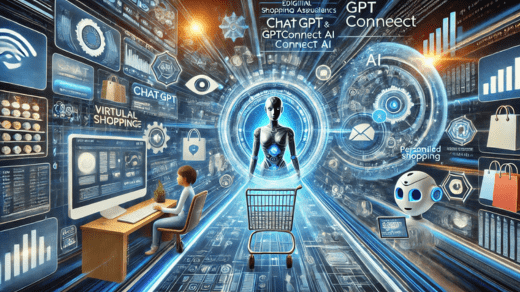In the current landscape of digital commerce, leveraging artificial intelligence (AI) has become essential for businesses aiming to enhance their ecommerce platforms. The best AI for ecommerce encompasses a broad range of solutions that address various aspects of online selling, from customer engagement to backend operations. Companies are increasingly adopting AI technologies to streamline their processes and stay competitive.
Several leading AI solutions have emerged, each offering unique features tailored to different business needs. For instance, platforms like Shopify and BigCommerce have integrated AI tools that help merchants optimize their storefronts and improve customer experiences. Moreover, specialized AI providers like Dynamic Yield and Algolia focus on personalization and search capabilities, respectively, providing ecommerce businesses with options to meet their specific requirements.
When evaluating these AI solutions, it is crucial to consider factors such as scalability, ease of integration, and the specific needs of the business. By choosing the right AI tools, ecommerce platforms can not only enhance their operational efficiency but also deliver a superior customer experience that ultimately drives sales growth https://gptconnect.ai/chatgpt-e-commerce-evolution-with-gptconnect-ai/.
Personalization at Scale: How AI Enhances Customer Experience
Personalization is no longer a luxury in ecommerce; it has become a necessity. AI technologies enable businesses to create tailored shopping experiences for their customers by analyzing vast amounts of data. Through machine learning algorithms, AI can identify patterns in customer behavior, preferences, and buying habits, allowing for a level of personalization that was previously impossible.
For example, AI-driven recommendation engines analyze user interactions to suggest products that a customer is likely to purchase, increasing the chances of conversion. This capability not only boosts sales but also enhances customer satisfaction by presenting users with relevant options. Companies such as Amazon and Netflix have successfully implemented such systems, showcasing the effectiveness of AI in personalizing the shopping journey.
Moreover, AI can facilitate dynamic content delivery, where websites adapt their layout and offerings based on individual user profiles. This level of customization can significantly improve customer engagement and retention, as shoppers feel that their unique needs are being met. In this competitive ecommerce environment, businesses that embrace AI for personalization stand to gain a significant advantage.
Chatbots and Virtual Assistants: Revolutionizing Customer Service
The integration of chatbots and virtual assistants in ecommerce platforms is transforming how businesses interact with their customers. These AI-powered tools provide immediate assistance, addressing queries and concerns in real-time. This shift towards automated customer service not only increases efficiency but also enhances the overall customer experience.
Chatbots can handle a multitude of tasks, from answering frequently asked questions to assisting in the checkout process. This capability allows companies to provide 24/7 support without the need for a large customer service team. For instance, brands like Sephora and H&M have successfully deployed chatbots that guide users through their shopping journey, ensuring that assistance is always just a click away.
Furthermore, these virtual assistants can learn from past interactions, improving their responses over time. By analyzing customer inquiries, AI can identify common issues and refine its answers, leading to a more satisfying customer experience. As more businesses adopt this technology, those that leverage chatbots effectively will likely see increased customer loyalty and repeat business https://gptconnect.ai/exploring-examples-of-ai-in-ecommerce-transforming-the-online-shopping-experience/.
AI in Pricing Strategies: Dynamic Pricing for Maximum Profitability
Pricing strategies play a critical role in the success of ecommerce businesses. AI technologies have revolutionized how companies approach pricing by enabling dynamic pricing models. These models allow businesses to adjust prices in real-time based on various factors, including demand fluctuations, competitor pricing, and inventory levels.
Dynamic pricing algorithms analyze market conditions and consumer behavior to determine the optimal price point for products. For example, airlines and ride-sharing services frequently use dynamic pricing to maximize revenue based on real-time demand. Ecommerce platforms can similarly benefit by utilizing AI to ensure competitive pricing while maintaining profitability.
Moreover, AI can assist in identifying pricing patterns that may affect sales. By understanding how price changes impact consumer purchasing decisions, businesses can refine their pricing strategies to optimize sales and enhance customer satisfaction. In an increasingly competitive digital marketplace, adopting AI-driven pricing strategies is essential for maintaining a competitive edge.
















+ There are no comments
Add yours